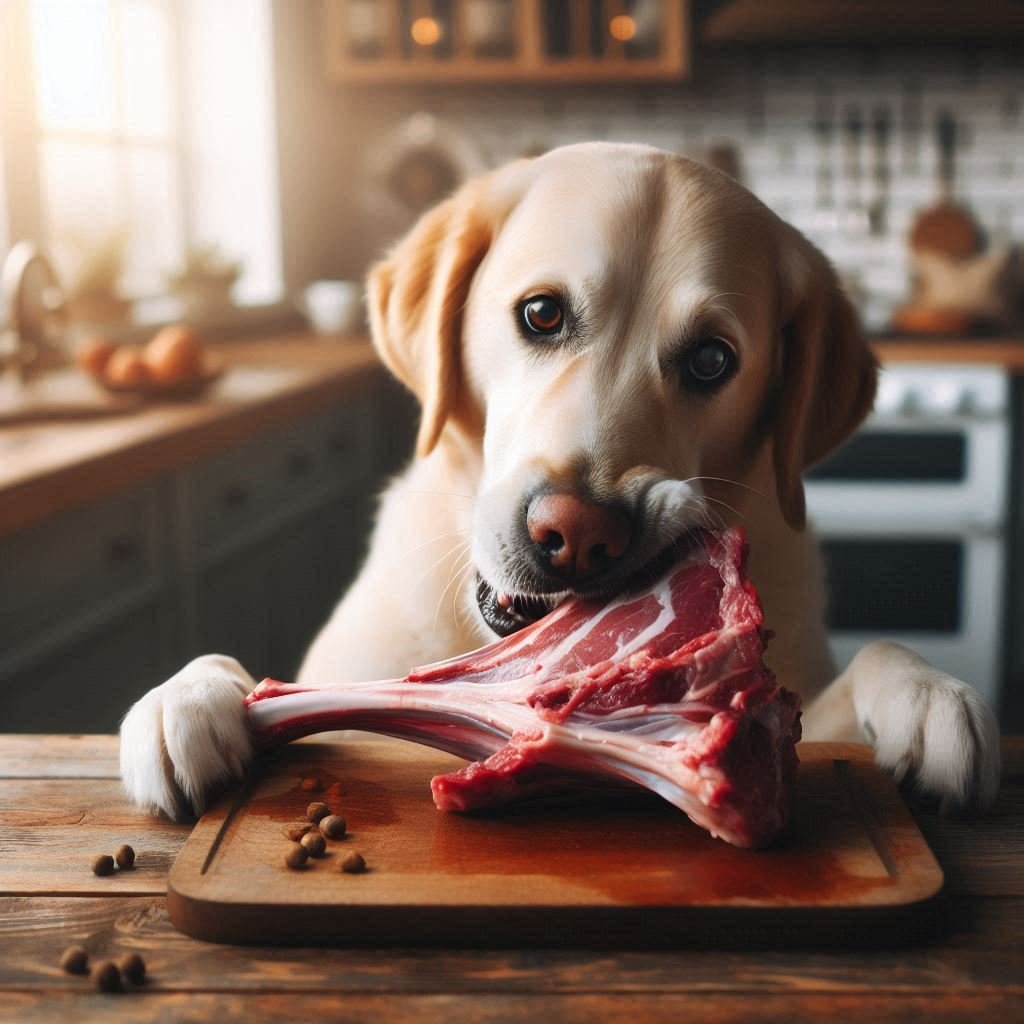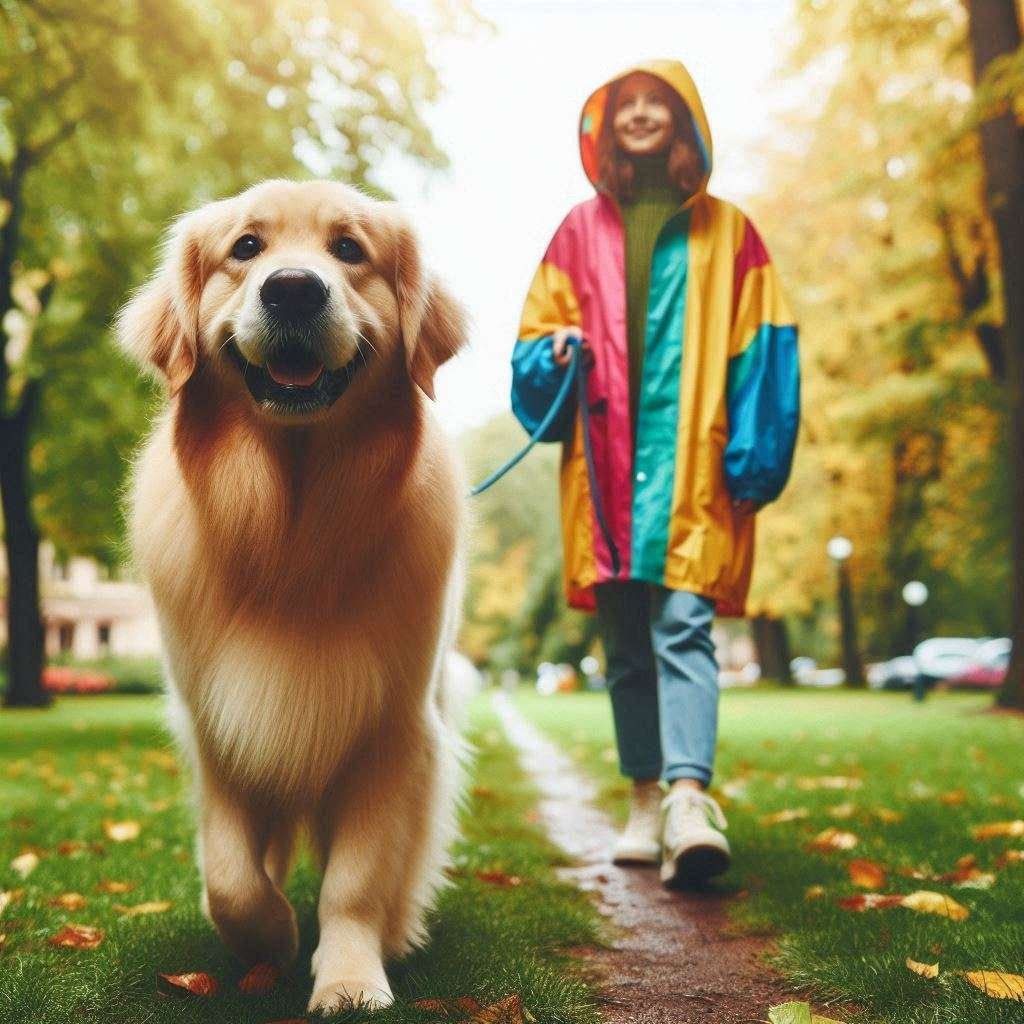When it comes to dog nutrition, pet owners often find themselves navigating a maze of information and advice. One question that frequently arises is, “Can dogs eat raw lamb?” Understanding the implications is crucial, whether you’re considering adding raw lamb to your dog’s diet or simply curious about its benefits and risks.
In this blog, I will discuss different aspects of feeding raw lamb to dogs, including the safety of raw lamb bones for dogs and whether raw lamb is good for dogs.
I will also address common concerns such as “Can dogs eat raw lamb bones?” and will help you make the right decisions about your pet’s diet.

Can Dogs Have Raw Lambs?
The short and simple answer to this question is Yes. Like other red meats, lamb is a healthy and organic source of animal protein and amino acids. Lamb is one of the essential elements of the ancestral diet of dogs, and their digestive systems have the natural capacity to break it down.
Raw lamb contributes to a dog’s overall health by providing high-quality protein, essential vitamins (like vitamins A, B, and B12), and minerals (like Iron and Zinc).
It can also serve as a secondary protein source for dogs allergic to other vital food options like chicken and beef.
With that being said, it should be considered that the raw lamb should be fresh and handled properly to minimize bacterial contamination. Developing a specialized raw meal plan for your dog is also advised to care for your dog’s nutritional needs.
Is Lamb Bad for Dogs?
No, raw lambs, if incorporated into the meal plan of a dog correctly, can become an important ingredient in satisfying their nutritional needs. You can easily prevent the risk of choking by chopping the raw meat into bite-sized pieces.
If your dog has a compromised immune system, you should avoid raw lamb, as it can increase the chances of stomach aches and food poisoning.
Moreover, avoid serving “lamb pâté” to dogs as it is too high in salt content and often contains spices like onion and garlic powder that are toxic to pups.
Other than these highly specific conditions, raw lamb is okay for dogs and should be part of a balanced diet that includes other protein sources, vegetables, and grains to ensure your dog gets all the necessary nutrients.
Benefits of Raw Lamb for Dogs
Benefits of raw lamb include:
Healthy Immune System
Vitamins and minerals in lamb (zinc and iron) can help strengthen your dog’s immune system. It keeps the body’s functions in excellent working order, improving your dog’s ability to fight off illness. Zinc helps in metabolism and thyroid function, while iron is vital for keeping your dog’s blood healthy.
Healthy Brain Development
Lamb meat is heavy on Omega 3 and Omega 6 fatty acids, which are important for healthy brain development in dogs. They also reduce inflammation and boost the kidney and heart health of the dogs.
Satisfaction of Natural Instinct
Providing raw lamb allows dogs to engage in their natural chewing behavior, which can be satisfying and enriching.
Digestive Health
Raw lamb contains natural enzymes that can aid in digestion and improve gut health.
Dental Health
Chewing on raw lamb bones can help reduce plaque and tartar buildup, promoting better dental health.
Dietary Fats
Apart from helping transport fat-soluble vitamins, fatty acids are also required for your dog’s overall health, and lamb contains the perfect dietary fats for a healthy dog meal.
Are Lamb Bones Safe for Dogs?
Yes. Raw lamb bones are safe and very nourishing for dogs. These bones elevate their dental health naturally and safeguard them against known and unknown oral issues.
That being said, dogs should never have cooked bones as it increases the risk of splinting and puncturing. Lamb bones are medically considered chewing bones, meaning that dogs can chew them but should never consume them.
Risks of Feeding Raw Lambs to Dogs
While feeding dogs raw lamb meat comes with its fair share of benefits, it also comes with some risks that should not go unnoticed. Some of the risks associated with feeding raw lamb include:
Bacterial Contamination
Carelessly handled raw lamb can harbor harmful bacteria like Salmonella, E. coli, and Listeria, which can cause severe illnesses in dogs, leading to symptoms like vomiting, diarrhea, fever, and even life- threatening conditions.
Parasitic Infestations
Raw lamb can contain parasites like tapeworms, roundworms, and hookworms, which can infect dogs and lead to digestive problems, weight loss, and other health problems.
Nutritional Imbalance
A raw lamb diet may lack essential nutrients or contain excessive amounts of certain vitamins and minerals, leading to nutritional deficiencies or overdoses, which can cause various health issues.
Choking Hazards and Digestive Obstruction
Feeding raw lamb bones can cause choking or lead to digestive obstruction, which can be life-threatening if not addressed promptly.
Allergic Reactions and Sensitivities
Some dogs may develop allergic reactions or sensitivities to lamb, resulting in skin issues like itching and hives, digestive problems like diarrhea and vomiting, or even anaphylaxis.
To mitigate these risks, it is always advised to consult your veterinarian and get your pet checked to ensure that it can easily transition to a raw diet without suffering from any medical condition that may not allow the dog to have lamb meat.
Conclusion
To sum it up, yes, dogs can eat raw lamb meat. Raw lamb offers numerous health benefits, including boosting the immune system, enhancing brain development, and improving dental health.
Despite these advantages, you must be cautious about potential risks such as bacterial infections and nutritional imbalances. Proper preparation, storage, and veterinary guidance are key to incorporating raw lamb safely into your dog’s diet.
FAQs
Can Dogs Eat Raw Lamb Chops?
Dogs can eat raw lamb chops but should not eat the bones around them as it can cause several serious health issues in them.
Can Dogs Eat Raw Lamb Liver?
Yes, dogs can eat raw lamb liver, which is also a great protein source.
Are Dogs Allergic to Lamb?
Dogs, in general, are not allergic to any kind of red meat (including lamb). But every dog is different, so I recommend checking up with your vet to find out if your dog has any specific medical condition that makes it resistant to lamb.


